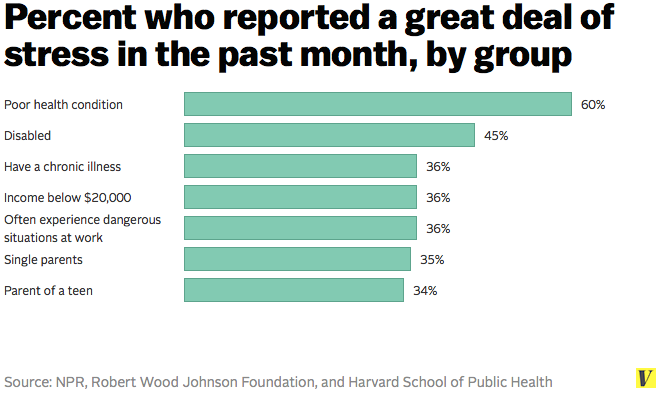At one point or another, all of us feel the effects of burnout. There have been times where I have been guilty of this as well.
But sometimes people are suffering from burnout without even realizing it.
A lot of times when you’re in a funk, you don’t know what it is.
When you don’t know where you want your life to go, it’s easy to get boxed into a corner of inaction. When that happens, you risk losing the foundation of your motivation —your passion.
If you’ve been hit by something, you can only swing and fight back if you have something to stand on.
But if you don’t have a solid foundation under you, don’t know your core values, and haven’t ranked your priorities, it’s a going to be difficult to remain on your feet.
Recently I received an email from an old friend of mine. My book, Serial Winner, struck a nerve with both her and her husband.
From an outside perspective, everyone would assume they are fine. Her husband has a big-time job, and her family seems picture-perfect.
Nobody realized that her husband lost his enthusiasm at work.
After speaking with my friend, I realized that this is a major problem for so many different people. They are suffering from burnout, and they need help.
Just to clarify before we proceed, stress and burnout are not the same. Stress at low levels can motivate you to achieve your goals. However, too much stress can lead to burnout.
[bctt tweet=”Stress and burnout are not the same. Stress at low levels can motivate you to achieve your goals. However, too much stress can lead to burnout.” username=”LarryWeidel”]
According to a study by the Harvard Business Review, 69 percent of chief marketing officers said their stress levels could be described as severe, very severe, and the worst possible.
This research relates highly to what my friend’s husband was experiencing. A person who is in a position of power in the workplace is not immune to burnout.
Anyone working any type of job is susceptible to this. But you don’t have to be. In the rest of this guide, I’ll show you how to avoid getting burned out.
Identify What Motivates You
What should you spend time on? Spend 90 percent of your time on tasks that motivate you to be productive.
Excitement produces activity. Activity produces results.
[bctt tweet=”Excitement produces activity. Activity produces results.” username=”LarryWeidel”]
Training. Knowledge. Experience. Progress. Confidence.
Real training is a product of activity.
But not everyone has the same motivating factors. For example, a recent study from IDG suggests that men and women have different motivations in the workplace.
 But beyond these general motivating factors, you need to identify things that specifically motivate you on a daily basis.
But beyond these general motivating factors, you need to identify things that specifically motivate you on a daily basis.
These motivations can be monetary or have a deeper meaning, such as trying to provide a better life for your family.
Once you can identify specific motivations, everything you do will feel like it has more of a purpose. This will prevent you from simply going through the motions and elevate you to a level where burnout won’t be a factor.
Recognize Your Limitations
Everyone has limits. Knowing your limits doesn’t mean selling yourself short or deciding in advance to stop striving for excellence. It means knowing what you need to persevere.
Don’t be limited by what others think you can do or what you think you can do. Chase your potential.
But recognize the early signs before burnout hits.
You can’t work 18 hours a day for a year straight. You can’t sit at a desk for 12 hours without eating, drinking, or going to the bathroom.
Yes, these are extreme examples. But you’d be surprised what I see people put themselves through at work, thinking that working longer automatically means being more productive, only to suffer from burnout.
Those people haven’t recognized their limits. Without guidelines, you will struggle to become a winner. Boundaries are the key to your success.
For example, make a rule for yourself that you won’t work more than X hours straight without eating, taking a break, stretching, having a snack, or doing something else that refuels you.
The wise man pursues profit and doesn’t want to live an average or an ordinary life. But he still realizes he has limitations.
Accept the fact that to overcome the world, you have to adapt to it… it won’t adapt to you.
[bctt tweet=”Accept the fact that to overcome the world, you have to adapt to it . . . it won’t adapt to you.” username=”LarryWeidel”]
Look at Your Day in Time Blocks
According to Statista, the average worker in the United States works 34.5 hours per week. This data includes part-time employees.
I found another interesting study that showed a correlation between the type of working hours people have and how it translates to their happiness in the workplace.
Image source: https://www.raconteur.net/business-innovation/is-flexible-working-really-a-good-thing
As you can see from this graph, people who work seven days per week are actually happier than those who work a standard 9–5, Monday–Friday schedule.
But regardless of your working schedule, there are ways for you to avoid burnout and remain happy. I came up with this time-blocking concept that worked for me. Let me explain how it works.
Back when I first started to build my own business, I kept two things in mind.
- I have 12 productive hours in my day.
- I can’t afford to spend all 12 of those hours at work.
Before I began this business venture, I worked a job where I didn’t get to decide my hours. I would work anywhere from 10 to 12 hours each day, for 6 days per week.
It was exhausting and very stressful for my family. My sons were young at the time, and my wife needed me to be more available to help out.
This was when I realized that money isn’t the most important motivating factor in my life. If I felt miserable at home, I decided that I was never going to work this type of job again.
But with that said, building your own business doesn’t necessarily translate to working fewer hours. However, I had more control over how and when I worked those hours.
[bctt tweet=”Building your own business doesn’t necessarily translate to working fewer hours. However, I had more control over how and when I worked those hours.” username=”LarryWeidel”]
That’s when I created this system for managing my family and work life.
I approached each day with four-hour time blocks.
- Morning
- Noon
- Night
All of my morning blocks started in the office. At the time, I had a lot of client meetings and would need to work in the evenings. But I wasn’t going to work every night, so I decided to only schedule appointments three nights per week.
On nights when I worked, I spent my afternoon block at home with my family.
On days when I scheduled afternoon meetings, I spent the first two blocks of the day at work and the last block with my family.
Depending on your current situation, you may not have control over your work hours. But you always have control over your priorities and how you’re going to manage your schedule.
Take Time Off
 Image source: https://www.surfertoday.com/surfing/14081-the-top-surfers-of-the-2018-world-surf-league
Image source: https://www.surfertoday.com/surfing/14081-the-top-surfers-of-the-2018-world-surf-league
Everyone needs a break.
At times, it feels like there just aren’t enough hours for you in the day, and taking a vacation would be impossible. Other times, people want a vacation but can’t take time off because they need the money.
Look, I’m not going to sit here and pretend I know your current financial situation.
But even if you’re low on funds, your physical and mental health should take priority over the amount of money in your paycheck.
I’m not saying you need to take a lavish vacation to a 5-star beach resort. You don’t even need to leave your home.
Take a break—even if it’s just a long weekend every once in a while.
Take this time off to unwind and recharge. Make a point to keep work off your mind. Don’t check any calls, texts, or emails related to work.
Instead, spend your time off with your friends, family, and do the things that make you happy.
When you return to work after a break like this, you’ll be more relaxed and won’t feel the effects of burnout.
Find a Hobby
“Get a hobby.”
I’m sure you’ve either said or been told those words at some point in your life.
Adding something extra to your schedule may initially sound counterproductive to burnout, but it will actually have the opposite effect. A hobby gives you something else to focus your mind on and gives you something to look forward to.
[bctt tweet=”A hobby gives you something else to focus your mind on and gives you something to look forward to.” username=”LarryWeidel”]
Do anything.
Start playing chess. Join a sports team. Build model trains. Learn a new language.
Your hobby doesn’t need to be related to your passion, but it could be.
I recently stumbled upon an article written by James Sudakow. James is the author of “Picking the Low Hanging Fruit: And Other Stupid Stuff We Say in the Corporate World.”
In this article, James describes how he had an unbelievably hectic schedule and was feeling the effects of burnout.
To avoid this, he started taking piano lessons. James said that after adding this new hobby to his schedule, he felt rejuvenated when he went to sleep and refreshed when he rose in the morning.
I strongly suggest you find a hobby that can take your mind off work and make you feel the same way.
Monitor Your Perspective
 Image source: https://www.ilexinstant.com/people-perspective-in-landscapes/
Image source: https://www.ilexinstant.com/people-perspective-in-landscapes/
It’s all about how you look at a situation.
I know it’s a bit cliché, but do you look at the glass half full or half empty?
Winners see potential solutions instead of problems. They meet challenges rather than allowing their difficulties to have more power over them than they should.
This is the perspective of successful people. If your perspective is coming from the position of negativity and pessimism, you’re going to have a greater chance of feeling burned out.
That’s because what you’re doing doesn’t seem to have a purpose.
Negativity is contagious. If you’re down, in a funk, and can’t find your motivation, then your perspective on every situation will be from the wrong angle.
You need to change the way you look at things.
Don’t create your own stress. Let go of the things in your life that you can’t control. Learn how successful people stay calm.
[bctt tweet=”Don’t create your own stress. Let go of the things in your life that you can’t control.” username=”LarryWeidel”]
Once you’re able to change the way you look at every situation in your day, you are less likely to be overwhelmed by burnout.
Pursue Your Passion
What’s your passion?
You’d be surprised by how many people I know who can’t answer that question.
If you don’t know what you’re passionate about, you need to get out there and find a passion before you can pursue it.
The best part of being alive is having a purpose and moving forward. You have things to do and limited time to get them done.
Passion helps you succeed where others may fail.
[bctt tweet=”Passion helps you succeed where others may fail.” username=”LarryWeidel”]
You’re in the game of life until your last breath. You can ignore it, and you can deny it. You can give up and not make any effort. You can be overwhelmed too, but the clock continues to tick, and you are still in the game. If you’re going to have any satisfaction, find your purpose.
You need something to work for, something to push for, something to challenge you and stimulate you.
I have an old friend, David Ramirez, who is a professional rolfer. If you’re unfamiliar, rolfing is a form of alternative medicine that focuses on the alignment of connective tissues. When David went to rolfing school, he always talked about how much fun it was to drive out of the city and explore the mountains.
During his time off, he would go through Colorado and into New Mexico. He was on an adventure and moving forward. To him, the travel was living large, and it was what he wanted to do. Then he came back and started his career, and he’s been doing that ever since.
He had a solid foundation and strong beliefs about what he wanted to be doing.
To avoid drifting through life, everyone needs to find a passion to pursue happiness and success.
Prioritize Physical Health
In addition to finding a balance between your work life and family, physical fitness needs to be part of your life as well.
The largest percentage of people who reported high stress levels are in poor health.
 Don’t get me wrong. I’m not saying you need to become a bodybuilder or get in shape to run a marathon.
Don’t get me wrong. I’m not saying you need to become a bodybuilder or get in shape to run a marathon.
You can focus on your health without ever picking up a weight or stepping foot in a gym.
Exercise increases mental acuity and improves your mood, and it can help you be more productive. Successful people make a point to exercise every day—even if it means just walking around your neighborhood for 30 minutes, or choosing the stairs instead of the elevator.
But exercise isn’t the only way to improve your health.
Good nutrition helps your body function, which helps you feel better and have more energy. Watch what you eat. Your meals should be balanced and have nutritional value.
Drink plenty of water. Limit consumption habits that hinder you physically and emotionally.
Engage in preventative health care to protect yourself from illness and catch serious health problems before you experience symptoms. Visit your doctor for an annual checkup.
Get plenty of sleep.
Learn the habits of highly successful people.
Your body and mind work together. If your body is sluggish and in poor health, your mind will be much more susceptible to the effects of burnout. But if your body is strong, your mind will be sharp and focused.
Make a Conscious Effort to Avoid Burnout
Nobody wants to feel burned out.
But so many people aren’t making an effort to avoid it. The first step in this process is recognizing how you’re feeling.
Even if you’re not feeling the effects of burnout today, you should still be taking measures to avoid it in the future.
Get motivated. Know your limits. Change your perspective. Pursue your passion.
Adding a hobby to your schedule is a great way to help balance your work life and personal life.
Know your priorities. Try to implement the time management tactics I talked about earlier by segmenting parts of your day into different time blocks.



